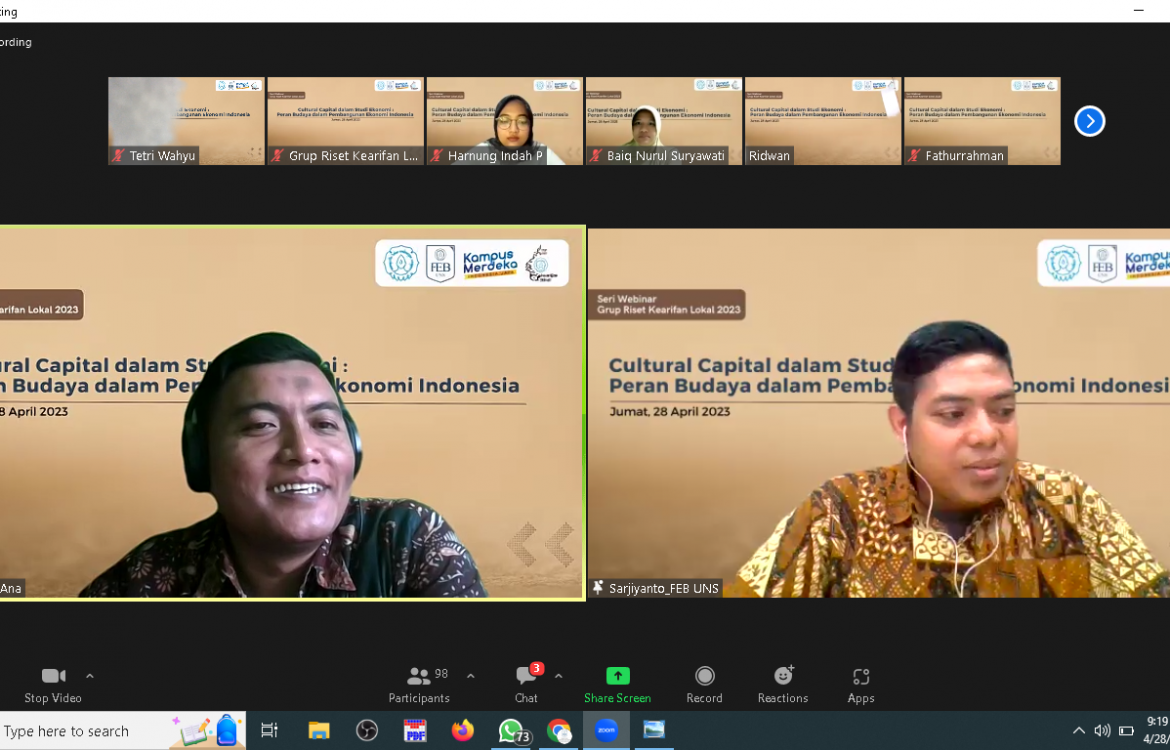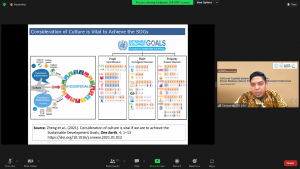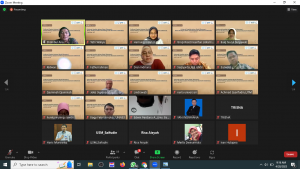
Local Wisdom Research Group Workshop, Cultural Capital in Economics Study: The Role of Culture in Indonesia’s Economy Development
“In our daily life, we have understood how biodiversity contributes to economic activity, meanwhile, there is limited study on the role of cultural diversity or cultural diversification in the economic sectors. Our Research Group (RG) sees culture as capital in development process, in this context is economic development.” This statement was delivered by Sarjiyanto S.E., MBA., Ph.D., FEB UNS lecturer, in a Workshop by Local Wisdom Research Group entitled ‘Cultural Capital in Economics Study: The Role of Culture in Indonesia Economy Development,’ Friday, 28 April 2023.
 Further, he explains that Indonesia as a country with rich cultural diversity can have a unique cultural capital in its development.
Further, he explains that Indonesia as a country with rich cultural diversity can have a unique cultural capital in its development.
“In fact, the International Culture and Development Commission states that economic development should also involve cultural aspects. A development that no longer considers the community and culture is a soulless development. Rapid economic development is part of community culture, as it should be,” he explains.
Sajiyanto invites webinar participants to discuss how this cultural diversity becomes a spirit in economic activities and development, similar to biodiversity.
The cultural economy according to the index determined by the Ministry of Education and Culture consists of several indicators such as the percentage of the population involved as performing arts supporters or performers, whose involvement in the cultural acts becomes their source of income. Based on recent data, some regions in Indonesia have had a very high cultural economy such as Yogyakarta Special Region (DIY) and Nusa Tenggara.
In fact, the cultural economy has a significant contribution to the economic development of a region. This sector revolves around how residents get their source of income from cultural activity. This disparity becomes the role of academicians to discuss. Academicians need to determine whether this dimension should be a single measure as well as to establish better proxies in measuring cultural economy to be factually measured and predicted.
Based on previous research, culture can contribute to the sustainable development goals (SDGs) accomplishment. Culture is found to have a mediating role in 17 SDGs’ role accomplishment, where 70% represent the SDGs target and 25% represent cultural values.
In development economics study, there is still room for measurement mechanisms and modeling, especially for novel development.
This occasion opens up the discussion on how cultural capital can be included in the development of economic models or research. The academic community shall provide supporting data and conduct research to prove that cultural capital can have a significant contribution to economic development, especially in Indonesia.

